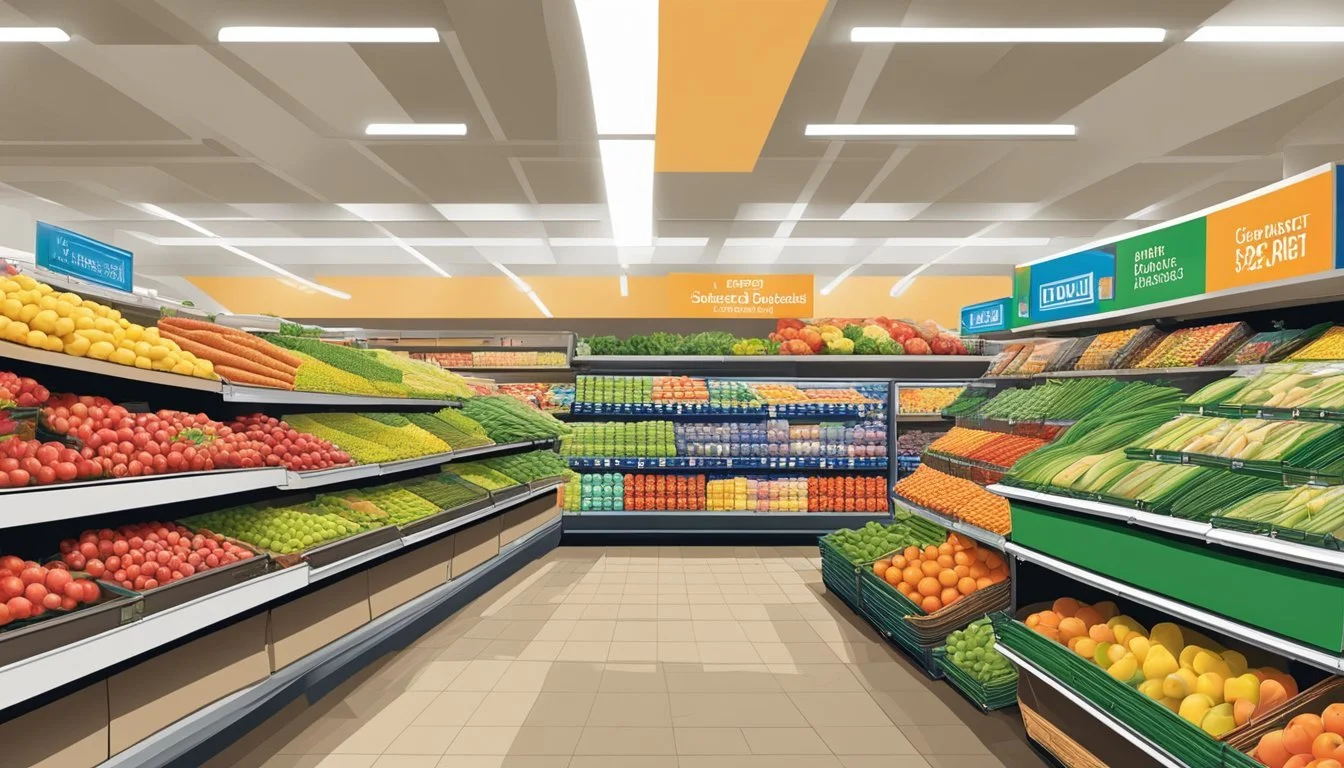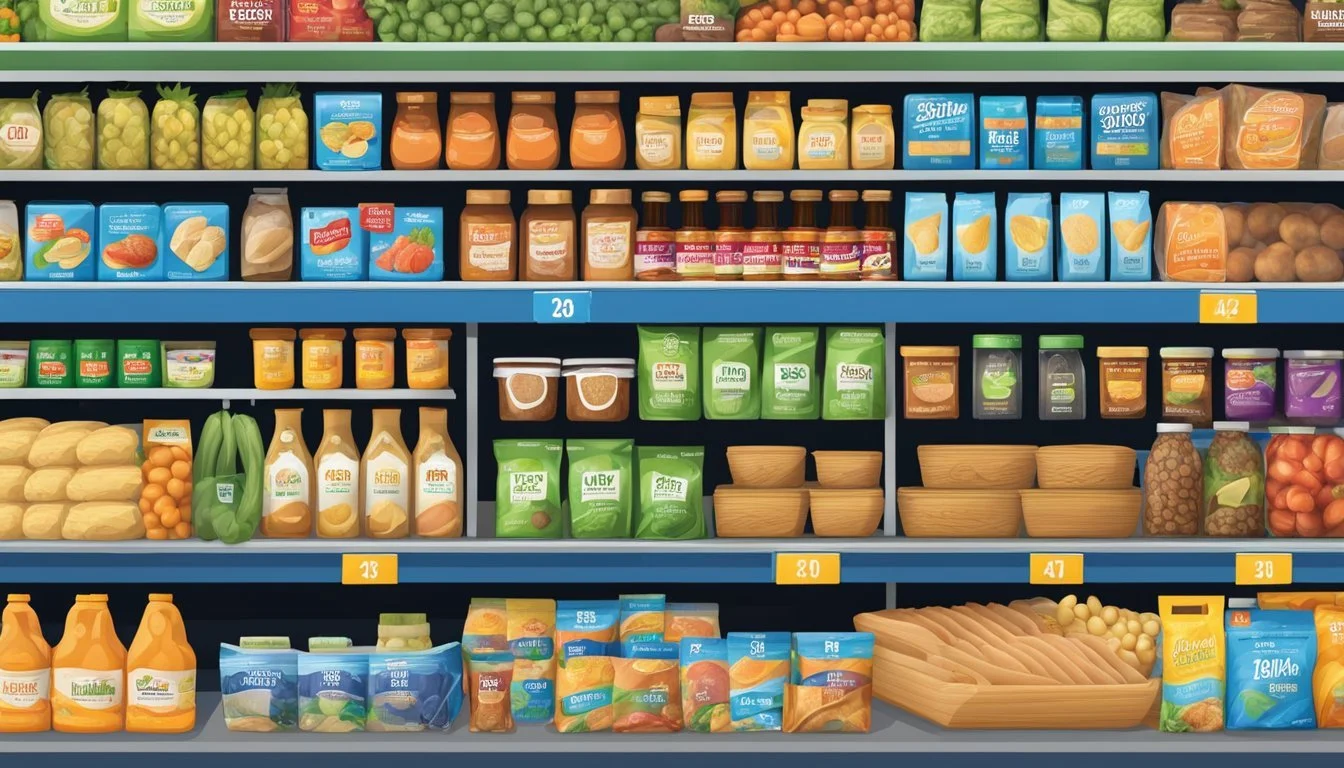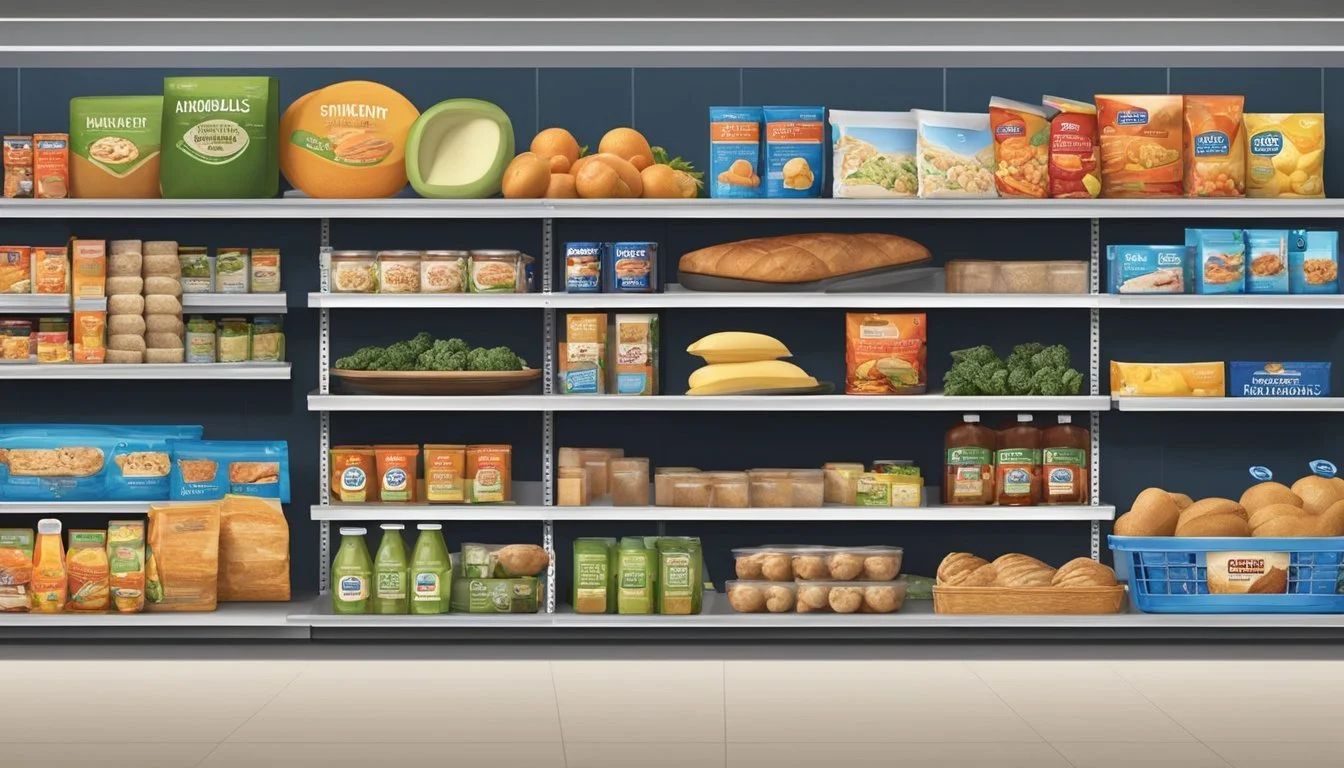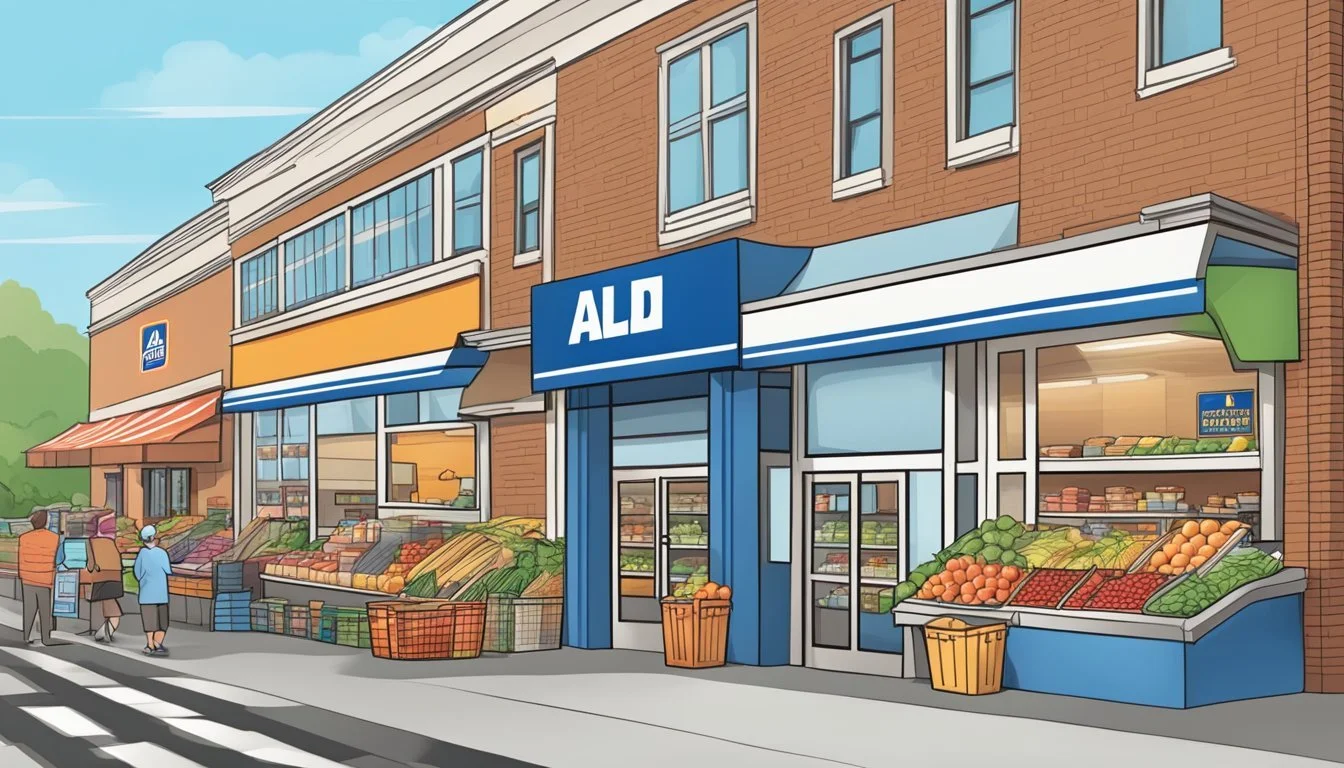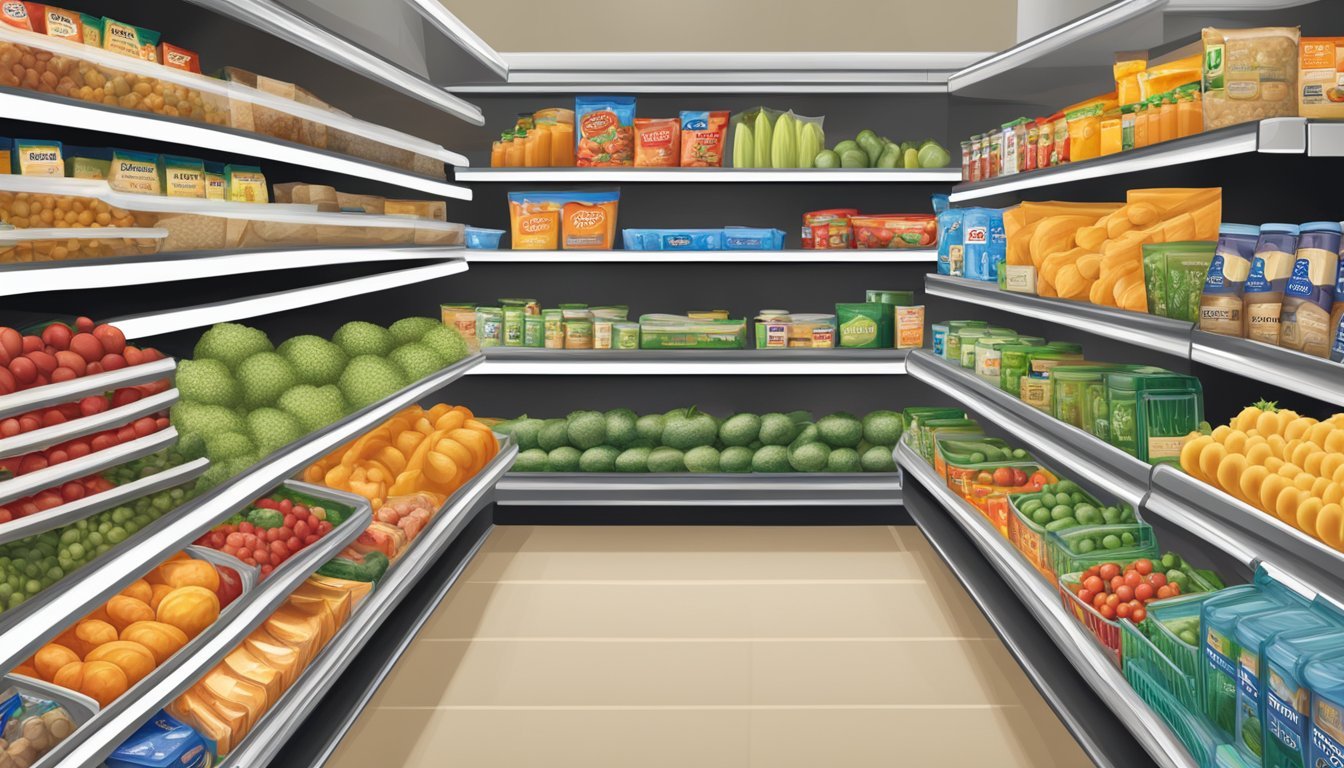Is Aldi Cheaper Than Demoulas Market Basket?
A Price Comparison Analysis
Aldi and Demoulas Market Basket are two grocery chains known for offering competitive prices to budget-conscious shoppers. Both stores have garnered loyal customer bases through their commitment to affordability.
While Aldi is often recognized as one of the cheapest grocery options nationwide, Demoulas Market Basket has been found to match or even beat Aldi's prices in some regions. A 2022 study by consumer data firm Dunnhuby compared over 60 grocery chains on affordability and other factors, with Market Basket ranking highly alongside Aldi.
Shoppers looking to save money on groceries may find it worthwhile to compare prices at both supermarkets. Each store has its own strengths, with Aldi known for its efficient operations and private-label products, while Market Basket is praised for its combination of low prices and quality items.
Background on Aldi and Demoulas Market Basket
Aldi and Demoulas Market Basket are two prominent grocery retailers known for their low prices and loyal customer bases. Both companies have unique histories and business models that have contributed to their success in the competitive grocery industry.
History of Aldi
Aldi's roots trace back to 1913 in Essen, Germany. Brothers Karl and Theo Albrecht took over their mother's small grocery store in 1946. They expanded rapidly, operating over 300 stores by 1960.
In 1961, the brothers split the company due to a disagreement over selling cigarettes. This resulted in Aldi Nord and Aldi Süd. Aldi Süd entered the U.S. market in 1976, opening its first store in Iowa.
Today, Aldi operates over 2,000 stores across 36 states in the U.S. The company is known for its no-frills approach, limited product selection, and focus on private-label brands.
History of Demoulas Market Basket
Demoulas Market Basket began in 1917 when Greek immigrants Athanasios and Efrosini Demoulas opened a small grocery store in Lowell, Massachusetts. Their sons, George and Telemachus, took over the business in the 1950s and expanded it significantly.
The company faced internal conflict in the 1990s and 2000s due to family disputes over ownership. In 2014, a widely publicized employee and customer boycott led to the reinstatement of Arthur T. Demoulas as CEO.
Market Basket now operates over 80 stores across Massachusetts, New Hampshire, and Maine. The chain is beloved for its low prices and employee-friendly policies.
Business Models and Growth
Aldi's business model focuses on efficiency and cost-cutting. The company offers a limited selection of mostly private-label products, uses a cart rental system, and requires customers to bring their own bags. This approach allows Aldi to keep prices low while maintaining profitability.
Market Basket, in contrast, offers a wider range of products, including both national brands and private labels. The company is known for its "More For Your Dollar" slogan and maintains low prices through efficient operations and a lean corporate structure.
Both retailers have experienced significant growth. Aldi has rapidly expanded across the U.S., while Market Basket has solidified its presence in the New England region. Their success demonstrates the continued appeal of low-price grocery options to consumers.
Price Comparison
Aldi and Market Basket are known for their competitive pricing strategies. Both chains strive to offer customers significant savings compared to traditional supermarkets. Their approaches to keeping prices low differ, as do specific price points on various products.
General Pricing Strategies
Aldi focuses on a no-frills shopping experience with a limited selection of mostly private-label products. This allows them to reduce overhead costs and pass savings to customers. Market Basket, on the other hand, maintains low prices while offering a wider variety of both name-brand and generic items.
Market Basket's pricing strategy involves keeping profit margins slim across all products. They negotiate aggressively with suppliers to secure lower costs. Aldi achieves savings through efficient store layouts, reduced staff, and a bring-your-own-bag policy.
Both chains adjust prices regularly to remain competitive. They closely monitor local markets and respond quickly to price changes from competitors.
Specific Price Points
While prices can vary by location and time, some general trends emerge:
Produce: Aldi often has lower prices on fruits and vegetables.
Dairy: Market Basket frequently offers better deals on milk and eggs.
Meat: Prices are competitive at both stores, with occasional sales giving one an edge.
Packaged goods: Aldi's private-label items are usually cheaper than comparable products at Market Basket.
Here's a sample price comparison of common items:
Item Aldi Market Basket Milk (1 gallon) $2.79 $2.69 Eggs (1 dozen) $2.39 $2.29 Bread (1 loaf) $0.89 $1.19 Bananas (per lb) $0.44 $0.49
Factors Influencing Prices
Several factors affect pricing at both chains:
Location: Prices may vary based on regional costs and competition.
Seasonality: Produce prices fluctuate with availability.
Supply chain efficiency: Both stores work to minimize logistics costs.
Product selection: Aldi's limited range allows for bulk purchasing and lower prices.
Store size: Market Basket's larger stores can offer more variety but may have higher overhead.
Inflation impacts both chains, but their strategies help mitigate price increases. Market Basket has been particularly effective at keeping prices low during inflationary periods, often outperforming larger competitors like Walmart in price comparisons.
Quality also plays a role in pricing. While both stores offer good value, Market Basket tends to stock more premium brands, which can affect overall basket costs.
Product Assortment and Quality
Aldi and Market Basket take different approaches to their product offerings, impacting selection, quality, and pricing. Both chains aim to provide value, but employ distinct strategies in terms of private labels, fresh items, and specialty products.
Private Label and Brand Selection
Aldi focuses heavily on private label products, with over 90% of its inventory consisting of store brands. This allows for tighter quality control and lower prices. Market Basket offers a wider mix of national brands alongside its private labels, providing more familiar options to shoppers.
Aldi's limited assortment helps keep costs down while maintaining quality standards. The chain rigorously tests its private label items to match or exceed competitors' quality.
Market Basket carries a broader range of products, including more national brands. This gives customers more choice but may result in slightly higher prices overall.
Fresh Produce and Meat
Both chains prioritize fresh produce and meat offerings, but with different approaches. Aldi's produce section is compact, featuring seasonal and staple items at competitive prices. The quality is generally good, though selection may be more limited.
Market Basket is known for its extensive produce departments with a wide variety of fruits and vegetables. Their commitment to freshness and competitive pricing has earned them a strong reputation among customers.
For meats, Aldi offers a core selection of popular cuts at low prices. Market Basket provides a fuller range of meat options, including specialty cuts and often local sourcing.
Specialty and International Offerings
Aldi's specialty and international products are typically part of rotating weekly specials. This includes unique snacks, cheeses, and seasonal items. The selection is curated but changes frequently.
Market Basket maintains a more consistent inventory of specialty and international foods. Their larger store format allows for dedicated sections featuring products from various cuisines and dietary preferences.
Aldi's approach offers surprise finds and limited-time deals. Market Basket provides reliability for customers seeking specific international or specialty items regularly.
Both chains strive to meet diverse customer needs, but Market Basket's larger footprint allows for a more expansive selection in this category.
Shopping Experience
Aldi and Market Basket offer distinct shopping environments, each with its own advantages. Their approaches to store layout, convenience, and customer service shape the overall experience for shoppers.
Store Layout and Design
Aldi stores feature a compact, no-frills design. Aisles are wider and products are displayed in their original shipping boxes to reduce restocking time. This efficient layout allows for quicker shopping trips.
Market Basket stores are typically larger with a more traditional supermarket layout. They offer a wider variety of brands and products, neatly arranged on shelves. The stores have a familiar feel, with departments clearly marked and easy to navigate.
Both chains prioritize functionality over aesthetics, focusing on keeping prices low rather than creating elaborate displays.
Convenience and Location
Aldi has expanded rapidly, with over 2,300 stores across 39 states. Their smaller store footprint allows them to open in diverse locations, including urban areas with higher rent costs.
Market Basket has a more limited geographical presence, primarily in the northeastern United States. Their stores are often larger, requiring more spacious locations. This can mean fewer stores but potentially more convenient one-stop shopping for customers.
Both chains provide shopping carts, though Aldi requires a quarter deposit to encourage cart return.
Employee and Customer Interaction
Market Basket is known for its friendly, attentive staff. Employees often build relationships with regular customers, creating a community atmosphere. The chain has a reputation for hiring locally and promoting from within.
Aldi takes a leaner approach to staffing. Fewer employees work in each store, focusing on efficiency. Cashiers often remain seated while scanning items quickly. This model helps keep labor costs down, contributing to lower prices.
Both stores train their workers to be helpful when needed, but Aldi's self-service model means less frequent employee-customer interactions compared to Market Basket's more traditional approach.
Discounts, Deals, and Savings Programs
Both Aldi and Market Basket offer various ways for customers to save money on groceries. These include weekly specials, loyalty programs, and seasonal sales. Each store has its own unique approach to providing discounts and deals.
Weekly Specials and Discounts
Aldi features "Aldi Finds," a rotating selection of limited-time, deeply discounted items. These deals change weekly and often include seasonal products, kitchenware, and specialty foods.
Market Basket promotes "Market Basket Specials" in their weekly circular. These discounts typically focus on fresh produce, meat, and popular grocery items.
Both stores offer markdowns on soon-to-expire products, allowing budget-conscious shoppers to save even more.
Loyalty Programs and Bargains
Aldi does not have a traditional loyalty program. Instead, they focus on maintaining consistently low prices across their entire product range.
Market Basket offers a digital coupon program called "Market Basket Digital Savings." Customers can load coupons to their account and redeem them at checkout.
Market Basket also provides additional savings through manufacturer coupons, while Aldi generally does not accept coupons.
Seasonal and Clearance Sales
Aldi runs seasonal promotions, particularly for holidays and back-to-school periods. They often feature themed products at competitive prices.
Market Basket holds clearance sales throughout the year, marking down overstock items and seasonal merchandise.
Both stores offer discounts on holiday-related items after major holidays, allowing customers to stock up for the following year at reduced prices.
Aldi's private label products are consistently priced lower than national brands, providing year-round savings. Market Basket offers a mix of private label and national brands, with regular promotions on both.
Customer Perspective
Shoppers have strong opinions about Aldi and Market Basket's pricing and value. Both stores attract loyal customers seeking affordable groceries.
Shopper Reviews and Surveys
Customers frequently praise Aldi for its low prices on everyday staples. Many shoppers report significant savings on their grocery bills compared to traditional supermarkets. Market Basket also receives positive feedback for competitive pricing, especially on produce and meat.
Consumer surveys indicate high satisfaction with both chains. A 2022 dunnhumby study ranked Market Basket first and Aldi second for inflation-fighting prices among 69 grocers. This aligns with shoppers' perceptions of getting more value for their money at these stores.
Perception of Value and Quality
Aldi's private-label products are often viewed as comparable in quality to name brands, but at lower prices. Customers appreciate the streamlined selection, which keeps costs down. Market Basket shoppers value the chain's mix of affordable store brands and discounted national brands.
Both stores score well on fresh produce quality. Market Basket is noted for its expansive produce section, while Aldi wins praise for consistently low fruit and vegetable prices. Meat quality perceptions vary, with Market Basket often preferred for its full-service butcher counters.
Brand Loyalty and Repeat Business
Aldi and Market Basket have cultivated strong customer loyalty through consistent pricing strategies. Market Basket's "More for Your Dollar" slogan resonates with budget-conscious families who make it their primary grocery destination.
Aldi's rotating "Special Buys" on non-grocery items create excitement and encourage repeat visits. The chain's rapid U.S. expansion has built a growing base of devoted shoppers. Market Basket's regional focus fosters community connections, with many customers shopping there for generations.
Neither chain offers traditional loyalty programs. Instead, they rely on everyday low prices to keep customers coming back. This approach appears effective, as both stores maintain high customer retention rates in competitive markets.
Competitor Analysis
Aldi and Demoulas Market Basket are both known for their competitive pricing strategies in the grocery retail sector. Their approaches to cost savings and market positioning differ in key ways.
Comparison to Other Retail Chains
Aldi and Market Basket consistently outperform larger competitors like Walmart and Target on price. A 2022 study by Dunnhuby ranked Market Basket as the top inflation-fighting grocery chain, with Aldi coming in second. Both chains offer significantly lower prices on many items compared to traditional supermarkets.
Aldi's strategy revolves around a limited selection of mostly private-label products. This allows them to negotiate better prices with suppliers. Market Basket, in contrast, offers a wider range of both national and private-label brands while still maintaining low prices.
Compared to Trader Joe's and Whole Foods, Aldi and Market Basket focus more on everyday low prices rather than specialty or organic items. However, both have expanded their organic and natural offerings in recent years to compete in this growing market segment.
Market Positioning
Aldi positions itself as an ultra-efficient, no-frills discounter. Its stores are smaller than traditional supermarkets and carry fewer SKUs. This lean approach allows Aldi to keep operating costs low and pass savings to customers.
Market Basket takes a different approach, offering a full-service supermarket experience with larger stores and more product variety. They maintain low prices through efficient operations and a loyal customer base that drives high sales volume.
Both chains prioritize value over amenities. Unlike Wegmans or Whole Foods, they don't emphasize in-store dining or extensive prepared food sections. This focus on core grocery items helps keep prices down.
Aldi and Market Basket have successfully carved out strong positions in the value grocery segment, competing effectively against larger national chains like Kroger and Walmart Supercenter.
Industry Trends and Future Outlook
Grocery chains face a shifting landscape shaped by economic pressures, technological innovations, and growing consumer demands for sustainability. These factors are reshaping how retailers like Aldi and Market Basket operate and compete.
Effects of Economic Changes
Inflation has significantly impacted grocery prices, driving consumers to seek out more affordable options. Discount chains like Aldi have seen increased popularity as shoppers look to stretch their budgets. Market Basket has also positioned itself as an inflation-fighter, topping rankings for value during these challenging economic times.
Both chains are expanding their presence, particularly on the East Coast. Aldi plans to open 800 new locations in the next four years, bringing its U.S. store count to 3,200. Market Basket continues to strengthen its foothold in the Boston area and surrounding regions.
Innovations in Retail and Shopping
Grocery chains are investing in technology to enhance the shopping experience and improve efficiency. Self-checkout systems, mobile apps for digital coupons, and personalized promotions are becoming more common.
Aldi's streamlined store layouts and efficient operations serve as a model for keeping costs down. Market Basket focuses on high-volume sales and lean operations to maintain low prices.
Online grocery shopping and delivery services are growing trends. While Aldi has partnered with Instacart for delivery, Market Basket has been slower to adopt e-commerce, focusing on its in-store experience.
Sustainability and Corporate Responsibility
Environmental concerns are influencing grocery industry practices. Chains are reducing plastic use, improving energy efficiency, and sourcing more sustainable products.
Aldi has committed to making all its packaging reusable, recyclable, or compostable by 2025. The company is also increasing its organic and locally-sourced product offerings.
Market Basket emphasizes community involvement and employee welfare, which resonates with socially conscious consumers. Both chains are likely to expand their sustainability efforts to meet growing customer expectations and regulatory requirements.
Conclusion
Determining whether Aldi or Market Basket offers lower prices is not straightforward. Both chains are known for their competitive pricing strategies.
Market Basket has earned a reputation for keeping prices low, even during inflationary periods. A 2022 study by Dunnhuby ranked Market Basket highly for affordability among over 60 grocery chains.
Aldi also performs well in price comparisons. In one analysis, Aldi's grocery basket cost $66.11, slightly less than Walmart at $67.63 and significantly less than Target at $83.62.
Price differences may vary by location and specific products. Market Basket tends to offer a wider selection of national brands, while Aldi focuses more on private label items.
Both chains prioritize value for customers. Market Basket is praised for its customer service and employee treatment. Aldi is recognized for efficient operations and paying employees competitive wages.
Ultimately, shoppers may find the best deals by comparing prices on their specific grocery needs at both stores. Factors like product quality, store location, and shopping experience should also be considered alongside price.


